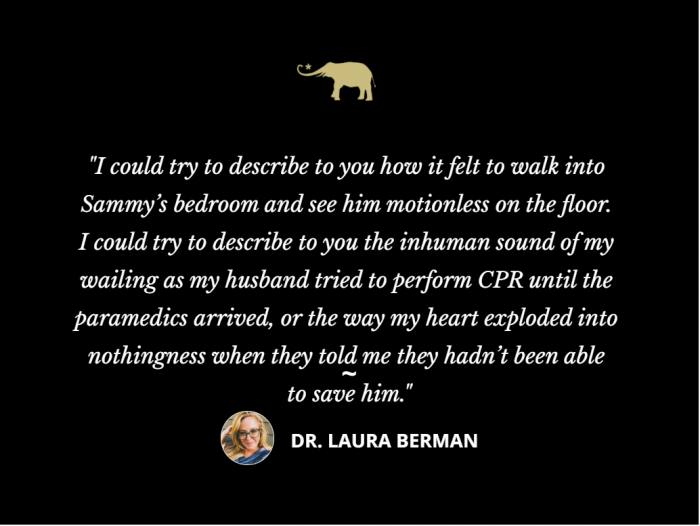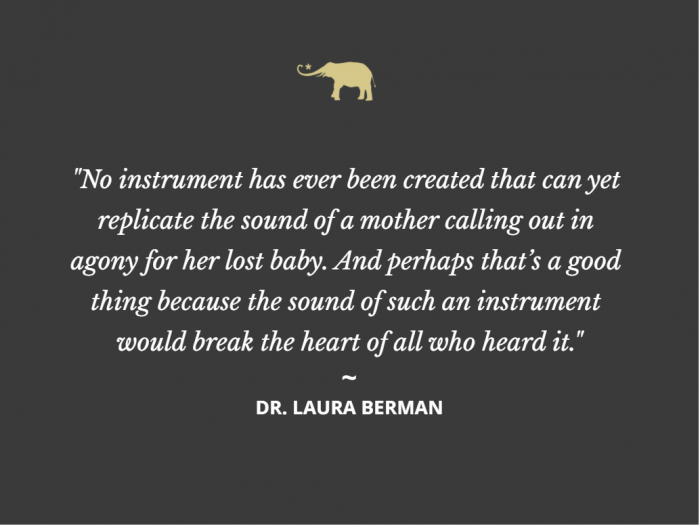View this post on Instagram
In February, I lost my middle child, Sammy, to fentanyl poisoning.
He was just 16 years old. Like many teens, Sammy was bored while stuck at home during the COVID-19 pandemic, and in a moment of curiosity, he bought Xanax from a dealer who was promoting drugs on Snapchat.
The “Xanax” ended up actually contained fentanyl, and within moments of taking the pill, Sammy was dead.
I could try to describe to you how it felt to walk into Sammy’s bedroom and see him motionless on the floor. I could try to describe to you the inhuman sound of my wailing as my husband tried to perform CPR until the paramedics arrived, or the way my heart exploded into nothingness when they told me they hadn’t been able to save him.
I could tell you about my ever-raw, ever-aching emptiness. About how my very soul broke the day I held my son in my hands again, this time cradling his ashes to my breasts in the same way I did when his body was newly-born, and silky-tender, and living, and breathing, and all mine.
But in the end, my words feel inadequate. Some pain cannot be touched by human language, because some love cannot be touched by human language. Describing my love for my son is impossible, and so too is describing my grief. No instrument has ever been created that can yet replicate the sound of a mother calling out in agony for her lost baby. And perhaps that’s a good thing because the sound of such an instrument would break the heart of all who heard it.
Although I am honest about my grief journey in real life and on social media, the process of grieving can still be quite isolating and lonely, even though I am surrounded by people who want to help me and support me. Particularly in the immediate days and weeks following Sammy’s death, I was girded round by family and friends and casseroles and flowers and sweet messages on social media. People wanted to help me, and I wanted to let them, but I wasn’t sure how.
“Tell me what you need,” they would write to me. “Whatever you need, just ask,” they would say to me.
I could only stare bewilderedly at them. I had no idea what I needed. I had no idea what time I last ate. Where my phone was. What day it was. How to keep on living and breathing when my son no longer was.
And so, eventually, the casseroles stopped coming. The flowers withered and browned. The phone calls slowed down. People started expecting me to be “normal” once again. To be at meetings and interviews and yoga classes and dentist appointments and the grocery store. To be back to the business of being normal, even as my broken heart felt as petal-less and bloodless as the now-discarded bouquets.
This is a process that most mourners are no doubt familiar with: the initial onslaught of well-intentioned flowers and trays of food, the pings on social media as friends and family send their love, the arms around you at the wake as you celebrate your loved one’s life and say your last goodbyes.
But the truth is, despite all these kind efforts and good intentions, I have come to intimately realize that a lot of how we support those in grief doesn’t really hit the mark.
I don’t mean that I am not eternally grateful for all the many ways people showed up for me and my family after my son’s death. But because I have also struggled in the past with figuring out how to support someone in grief, I thought I could share my hard-earned wisdom on this topic.
Here is a brokenhearted mama’s best advice for how you can support someone who is grieving:
Don’t ask a griever how you can help.
Most people in grief are barely cognizant of their needs or their physical state. We are being rocked by waves of pain and moments of utter numbness, so asking us to tune into what we need is sort of like asking someone in a coma how you can help. Plus, if you struggle with being a people-pleaser or codependency, as I do, then we may not even allow ourselves to ask for help even if we really, really need it.
What can you do instead?
Be proactive. Don’t ask or offer to help in an open-ended way. Instead, offer real, tangible things that you want to do to help, either in the present moment or the future. Ask if they want to go for a walk. Plan a hike for the following weekend. Offer to drive them to the grocery store or church. Book a set of yoga classes for the two of you. Ask if they want you to take the dog on walks or weed the lawn or whatever else you see that needs doing. If they say “no,” alright. But keep asking. Keep looking for ways you can be of service, and don’t take the “nos” personally.
This brings me to my next point.
Center the mourner, not yourself.
When you are offering comfort to a friend who is grieving, mind your pronouns. By which I mean, try not to get lost in “I” driven conversation, such as “I can’t believe this is happening,” or “I wish I knew what to say,” or “I know exactly how you feel,” or “I wouldn’t be able to get out of bed if I was you!”
Instead, center your loved one by making your conversation “You” driven, such as “You are not alone,” “You are so loved,” or “You always have a safe place with me to express your grief.”
Most importantly, just be careful not to personalize your friend’s grief by making it about how you are experiencing their loss. I’ve had friends tell me, “I am traumatized because I can’t stop thinking about how he must have felt when he died,” or “I am holding my son so tight now, I can’t believe the pain you must be in” or “I’m snuggling my baby right now and thinking about you.”
I appreciate the sentiment, but comments like that can cut like a knife. Of course, I want you to love and snuggle your babies and cherish every moment of their childhood, but telling me that doesn’t offer me any comfort. It just reminds me that my arms are empty and I can’t snuggle my Sammy. So please, love your family and live in the moment, but be mindful of your audience.
Let me care about you too.
I hate when a friend of mine is sharing a struggle or a stressful event, and then will stop herself and say, “Never mind, this is nothing compared to what you’re going through.” Ouch. This is coming from such a good place but I really dislike being shut out of my friends’ lives that way. It’s as if I have a scarlet letter on my chest, “G” for grieving, and as such, I don’t get to be involved in all the triumphs and tribulations of the people I love.
Take it from me: just because someone is in grief does not mean that they don’t want to hear about their friends’ lives. Yes, I am grieving, but I still care about your divorce or your dog’s heart problem or your financial stress. I still want to hear about you and your life. I still want to be your friend, in every sense of the word. I am still here. I am still me. So I speak for all grievers when I say: please, let us in when we ask! Let us be part of your world.
Sit with my pain.
This is perhaps my biggest tip of all: before you try to comfort someone in grief or offer words of sympathy, please stop and check in with yourself. Ask yourself, “Am I trying to ‘fix’ their pain? Am I trying to resolve their grief and make them feel better…so that, in turn, I can feel better?”
When you put it that way, it sounds kind of selfish, but it’s actually a common and human response. We don’t like to see the people we love in pain, because it causes us pain, especially if we are empaths or people who struggle with codependency.
As an empath, my natural response whenever I have seen someone I love grieving is to go overboard trying to help them. It’s part of why I became a therapist, part of my role in my family: to be the fixer, the nurturer, the one who takes on everyone’s pain as if it is my own.
Does that sound familiar? Even if you aren’t an empath or someone who struggles with codependency, you probably have felt overwhelmed or anxious or deeply saddened at the sight of your loved one’s grief. In response, you may have tried to “kiss it better,” to brush it under the rug, or tried to encourage your friend to forget or move on or somehow just get past the pain.
But you know what has been the most healing for me while I am grieving my son? Friends who are brave enough to sit with me in my pain. Friends who see my deep grief and who don’t want to change it, but who want to be present with me during it. Friends who are conscious enough and enlightened enough to be willing to let my pain and sorrow and brokenness exist, without judgment, without criticism, without needing to fix me or manage my hurt. Friends who honor my grief by being willing to see my grief, to sit with it, to let it exist in all of its messiness.
At the end of the day, that’s all any of us want. Whether you are grieving a pet, a family member, a job, or some other painful loss, we all just want to know that the people around us will give us space for our grief. That they will support us with nonjudgment and unconditional love as we wrap our arms around this pain and learn to carry it. We want to be seen and our grief to be seen because our grief is part of our love.
I will never stop grieving my son because I will never stop loving him. And, fortunately for me, I am surrounded by soul-friends who know and understand that—who understand that grief is not linear, or a one-size-fits-all, or something that expires or fades away.
My grief is constant, but so is my faith, my love, my intention to find joy, my intention to live wholeheartedly, and my vulnerably. And the more I am surrounded by people who are similarly minded and similarly intentional about making space for everything—beauty and pain alike—the more I can heal. And the more I can help in this important business of healing the world.













Read 13 comments and reply